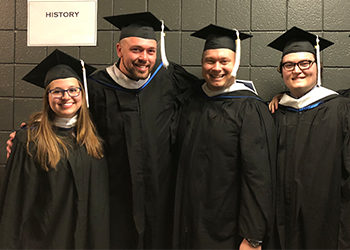Marquette University has an institutional membership with the National Center for Faculty Development and Diversity (NCFDD). NCFDD is an independent center dedicated to helping faculty, post- docs, and graduate students make successful transitions throughout their academic careers by providing professional development, training, and mentoring. NCFDD resources are applicable across disciplines and focus on a range of topics that include strategies for increasing productivity, maintaining work-family balance, managing time more effectively, resolving conflicts, and writing grants, among others.
With Marquette’s institutional membership, graduate students can sign up for a sub-account at no cost; you will then gain access to weekly e-mail providing productivity tips, monthly productivity webinars and multi-week courses, NCFDD Career Center resources, discussion forum for peer-mentoring and problem-solving, mentor matches. For more information about Marquette’s institutional membership with NCFDD, please contact Gary Meyer, Senior Vice Provost for Faculty Affairs or William Welburn, Executive Director, Diversity and Inclusion.


